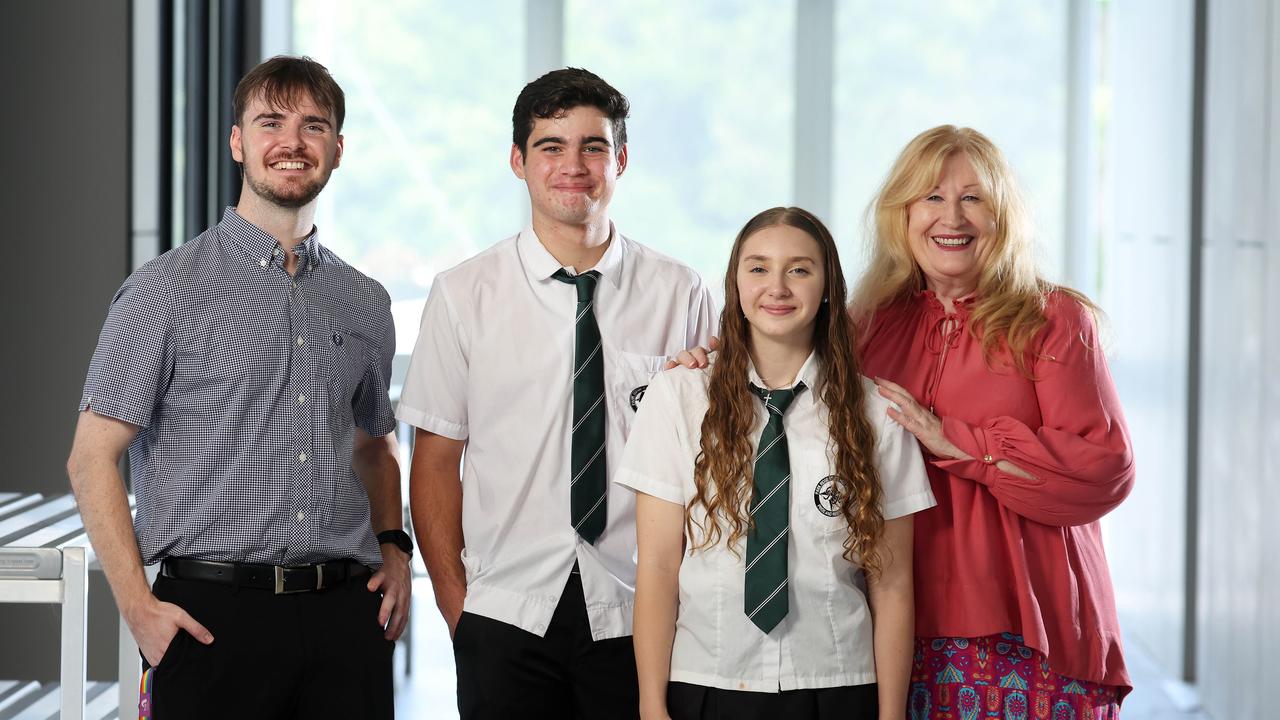‘I was told it was a twinged nerve’: Personal trainer on warning sign that was ignored
A Queensland personal trainer has revealed the warning signs ignored after she suffered a knee injury that took a month to heal. After that, her legs started to become weak.
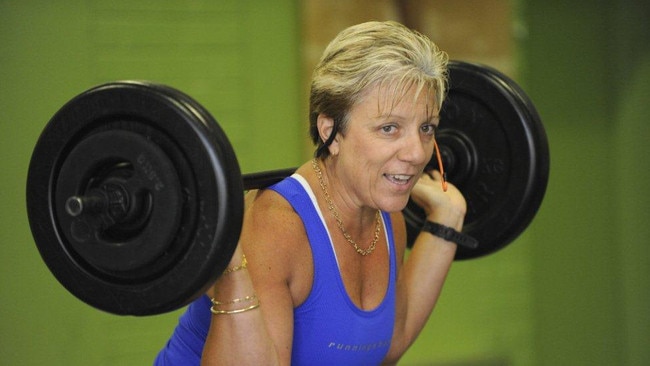
QWeekend
Don't miss out on the headlines from QWeekend. Followed categories will be added to My News.
Leanne Sklavenitis watches the butterflies dance around her. Whenever she sits outside she follows them with her eyes and then, just like always, one gently finds its way to her and lands softly on her skin.
For the time it sits there, its wings lightly blowing in the breeze, she allows her world to be as big as its world, full of possibilities, discovery, wonder and freedom. A world Sklavenitis, 58, once had, when she worked in the fitness industry for 30 years as a personal trainer fronting 11 group fitness classes and running about 30km a week.
That world, however, is fading as motor neurone disease (MND) slowly takes away her freedoms and independence.
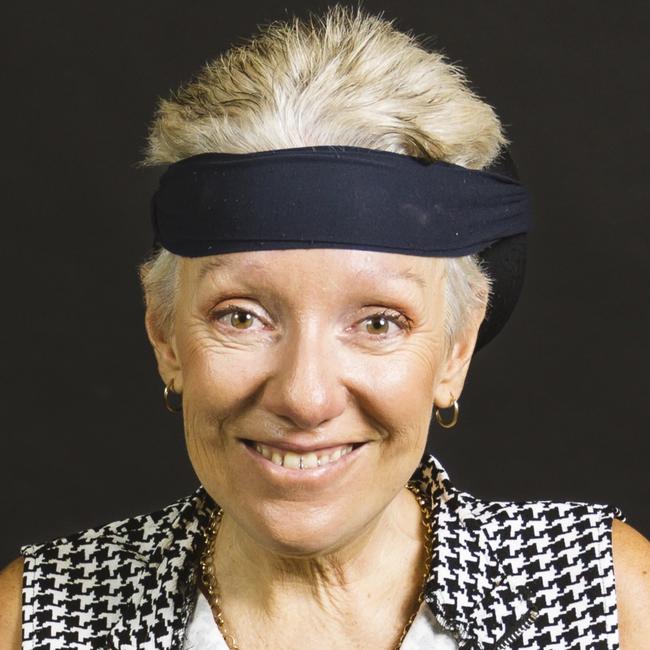
The cruelties of her incurable MND diagnosis have rendered her immobile, she’s unable to speak as her muscles rapidly waste away. She is dependent on 24/7 care, which includes a team of 16 people on rotation.
For her and those around her, including her husband Steve Spangenberg, 60, and daughter Maree, 27 (from a previous relationship), it is shocking and heart-wrenching to witness.
Yet despite all it has taken from her, Sklavenitis has outlived her prognosis where doctors told her she had between two and five years to live when she was diagnosed in 2017.
Her legs were impacted first, confining her to a wheelchair, before the muscle weakness crept to her hands, taking away simple tasks like brushing her teeth or opening water bottles.
The cruellest of all, by 2019, she lost all ability to speak. But years later, with the power of technology, parts of Sklavenitis’s world she thought were never coming back have returned and she’s been given a voice.
Even more powerfully, she’s using the subtle movements of her eyes to tell me all of this – and her story – herself. I’m sitting with Sklavenitis in her Sandgate home, on Brisbane’s bayside, and we are having a conversation as she uses eye tracking technology to communicate.
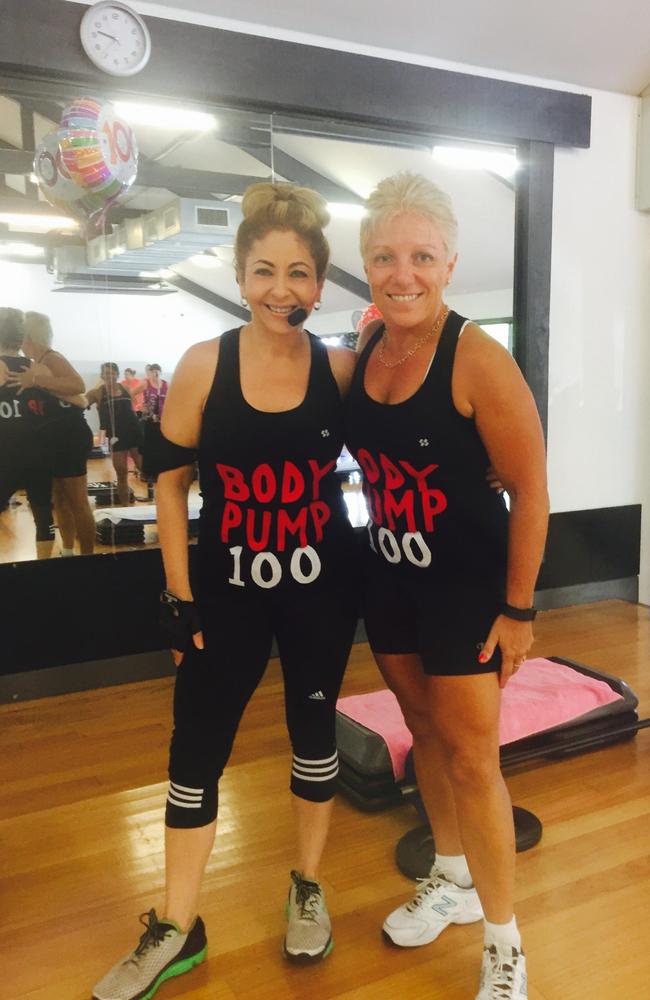
It’s called Tobii Dynavox and the screens are set up on the desk in front of her and her eyes begin to move across the keyboard on the screen. As she looks at letters, words and sentences start to form, then the text converts to speech. Sklavenitis has the voice she thought she’d lost and, in her own words, she can explain how incredible this feels.
“The technology is essentially how I communicate with the world around me, it keeps me alive!” she tells me.
“This technology tracks my minute eye movements across a computer screen so I can control a mouse cursor on the screen with my eyes, no hands required. This way I’m able to continue to actively participate in conversations, type documents, research online, use email and messaging platforms.
“There is not much I can’t do. What’s been really important to me is that this technology enables me to stay connected with family, friends, colleagues and staff.”
It’s how she’s managed to maintain the fitness business she founded – Fitness Tips – and operate her online platform from her home twice a week. With the help of some staff, including Donna Sallmann, who has been working for Sklavenitis since 2020, she writes wellness programs for clients and regular blogs on nutrition, exercise and health. She has also become a motivational speaker travelling to various events across the country presenting her story, using her text-to-voice technology and assistance from her team to pull it all together.
“My passion, no matter how MND has impacted me, is in helping others,” she says.
“Regardless of my own adversity, I’m still able to help a community of women to feel fit and fabulous no matter their age or ability.”
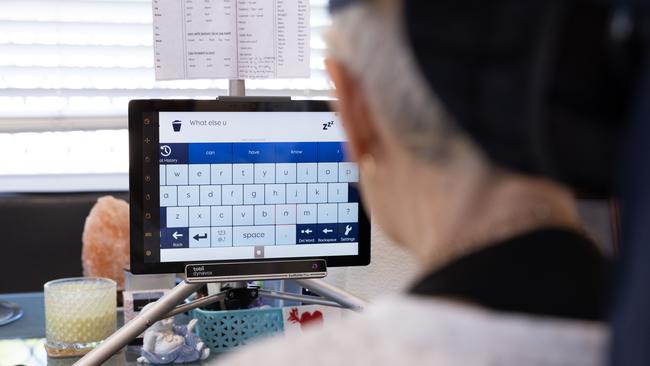
Sklavenitis says she uses an AI voice generator program to help present to audiences and, after writing her script, adds in the AI voiceover to her presentation recording.
Despite her body wasting away, she refuses to let her mind succumb to the realities of MND.
“While MND destroys my body, my mind and intellect remains unaffected,” she says.
“It is here where I hold my power, the power of mindset. My power is in the freedom to choose how I am going to respond to this adversity which I endure every single day.”
Sklavenitis was a personal trainer who, she says, “did basically anything that kept me on the move”. She’d teach group fitness classes and run – with her health always a priority.
So when that health started to change, she knew something wasn’t right.
“It took about a month for a knee injury to recover and, during that time, I was being told it was a twinged nerve, but I knew my body and didn’t feel this was right,” she says.
She tried getting new orthotics, seeing a physio and sports doctor and then a neurologist who told her it was muscular.
“From there, I was experiencing a gradual progression of leg weakness and instability, then came the signs which hinted at something more, like falling off my bicycle for no reason.”
It took 18 months to receive a diagnosis.
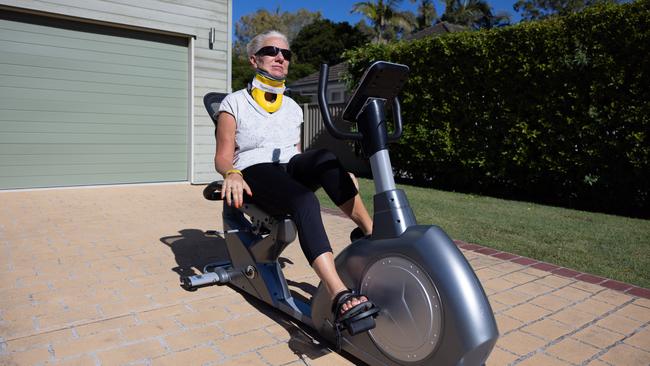
“It was an incredible relief to finally know for sure what was wrong but I had an awful feeling of dread of what it really meant,” she says.
“I was definitely in shock at receiving a terminal diagnosis … I asked the neurologist how long I had; the only thing he could give me were the stats, two to five years.”
As the disease worsens, Sklavenitis describes what it feels like to be trapped inside your own body. “My loss of independence has been my biggest challenge,” she says.
“These days there is barely anything I can do for myself. From the time I wake up to the time I fall asleep, I am dependent on others to help.
“Living life with MND is intensive, I am totally reliant on my support team for even the simplest daily tasks from feeding me every meal and snacks, helping me with phone calls and text messages, to taking me to appointments.
“It’s all those things you do unconsciously which makes it so frustrating, like scratching an itch, adjusting yourself if you’re uncomfortable, crossing your legs, picking something up off the floor, rolling over in my sleep. With two carers around the clock, my privacy is long gone.”
It’s difficult to watch, says Spangenberg, who cared for Sklavenitis himself for about five years before her carers took over.
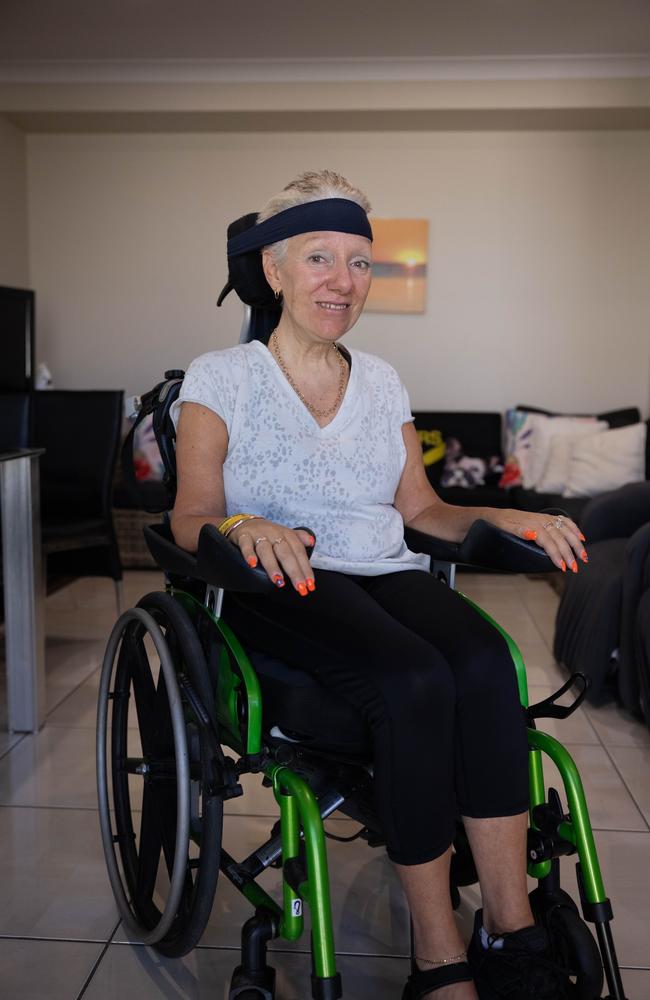
“You have to prepare yourself mentally for her to die,” says Spangenberg, an accountant.
“It’s all a mental game, you have to handle your emotions, learn how to let go of your emotions. We’ve been through it all, done all our talking about it. When she goes, she’ll be happy because she has no regrets.
“She gave me permission if I wanted to go and find another woman, if I wanted to.”
But that was never an option for Spangenberg, from Pennsylvania in the US, who only has more love for his wife.
The pair met in 2008 at a personal development seminar in the US and quickly started a life together. They set up in Melbourne before moving to Sandgate eight years ago.
It’s the small things Spangenberg misses.
“Being able to give me a hug, being together, driving places together, being alone,” he says.
“Whenever we would go somewhere we would never not hold hands, even in the car, there was always the connection.”
As Spangenberg says, he can’t help but “kiss her a million times a day”. Sklavenitis smiles.
It’s one of the few movements she can still make on her own and the most profound.
What is clear about Sklavenitis is how brilliant her outlook is and she’s a woman determined to make the days count.
Of all the things she has to say, one thing stays with me as she explains why she loves those butterflies so much. “They are symbolic of change into good things,” she says.
“Even in facing my own challenges, with the help of my awesome team, I am still able to inspire and help others by sharing my story and the lessons I’ve learned on my journey to living an awesome life with MND.
“I’ve come to realise the amazing healing power found in helping others struggling with their own adversity.”
Just as a butterfly has a metamorphosis, so has Sklavenitis and, like them, her radiance and beauty is eternal. For as long as she can, she will continue to fly alongside them.





